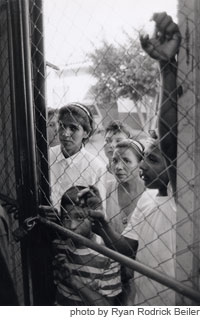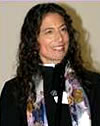 Why would a congregation risk prosecution to provide sanctuary to an immigrant family? Why would a pastor decide that people who have broken laws deserve protection, support, and advocacy?
Why would a congregation risk prosecution to provide sanctuary to an immigrant family? Why would a pastor decide that people who have broken laws deserve protection, support, and advocacy?
When I was doing missionary work in Southeast Asia, I attended a service in a language that I didn’t speak. At a certain point, I discerned that they were saying the Lord’s Prayer. It was an amazing moment; I felt the depth of our connection as brothers and sisters in Christ, beyond all of our differences. When we got to the line, “Forgive our debts as we forgive our debtors,” I was struck by the insight that one of the deepest roots of our connection is the common experience of God’s mercy. While we were yet sinners … while we did not deserve forgiveness … before we had any capacity to repent … someone loved us enough to die for us. Someone had compassion on us—literally “com” (with) and “passion” (feeling)—someone felt with us, felt our pain as if it was his pain, our hopes and dreams as if they were his hopes and dreams.
Sanctuary is an act of compassion, an expression of mercy. It is, however, not mercy at the expense of justice. Participants in the New Sanctuary Movement believe that our current immigration system is profoundly unjust—so unjust that we believe that we are facing one of those unique moments throughout history when divine law and human law are in conflict and God’s justice demands that we stand with those who break unjust laws even at the risk of sharing their punishment. Sanctuary is not only about mercy; it is also about justice.
But for many of us, the decision to provide sanctuary is rooted in the impulse of the heart to love as we have been loved—to hear the cries of Liliana and Joe and Mae and Jose and Juan and Jean’s children and respond with compassion.
Yet, the act of sanctuary is more than simple charity. What we do with someone who has broken into our house only to go on to clean it, take care of our garden, remodel the deck, watch over the children, and cook us dinner? We read in Hebrews that those of us who provide hospitality have entertained angels unaware. To offer sanctuary is to recognize that the strangers in our midst are blessing us, in clear and mysterious ways. May we respond with the hospitality that we have received.

Rev. Alexia Salvatierra is the Executive Director of CLUE (Clergy and Laity United for Economic Justice), an organization of religious leaders in Los Angeles county who support low-wage workers in their struggle for a living wage, health insurance, fair working conditions, and a voice in the decisions that affect them.
More from Beliefnet and our partners
